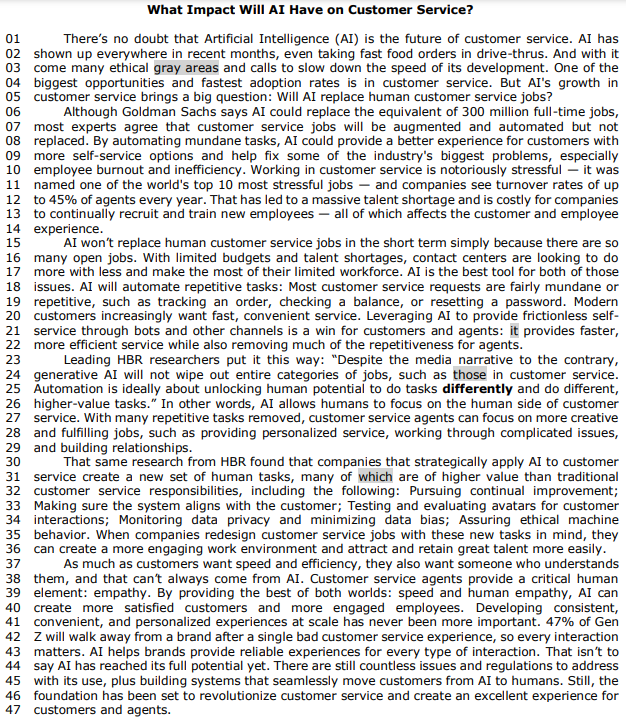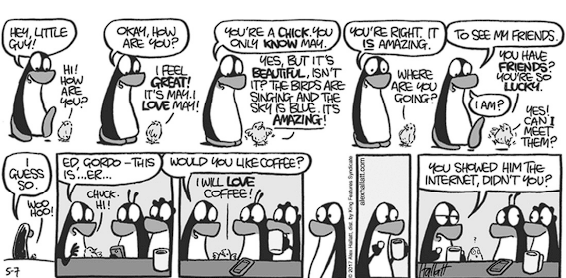Questões de Concurso
Comentadas sobre verbos | verbs em inglês
Foram encontradas 1.428 questões
Concerning the present continuous, analyze the sentence below:
She is studying for her final exams this week (1st part). She visited the museum yesterday (2nd part).
The sentence is:



Internet: <alexhallat.com> (adapted).
Judge the following item, according to the preceding comic strip.
In the comic strip, it is possible to find examples of
sentences in the present, past and future tenses.
TEXT III – Tema: As novas tecnologias na sala de aula de Língua Inglesa
Is Technology Taking Over Classrooms?

(Available from: https://citedatthecrossroads.net/eng101f13/2013/10/27/is-technology-taking-over-classrooms/ Accessed on July 8th , 2023)
TEXT III – Tema: As novas tecnologias na sala de aula de Língua Inglesa
Is Technology Taking Over Classrooms?

(Available from: https://citedatthecrossroads.net/eng101f13/2013/10/27/is-technology-taking-over-classrooms/ Accessed on July 8th , 2023)
"The government said it would be up to individual schools to agree the exact rules with teachers." (3º§)
Which verb tense the sentence above is?
My wife: “Look at all the smoke up ahead. Me: Crazy, right? And look at the number of firefighters and ambulances. The accident _________ have been serious.”
“My mom: Did you say goodbye to our neighbors? Me: Why? “My mom: Because they _________ to Italy for a couple of days.”
Choose the CORRECT answer.
“My friend: I love this TV channel. Me: Me too. It always _________ amazing documentaries every day.”
Choose the CORRECT answer.
“The little girl _________ some chocolate.”
Choose the CORRECT answer.

Talking to my wife: “We need to buy a new car! I ________ our car 3 times to the shop this last month. It cost us a lot of money.’’
Choose the CORRECT answer.
“When George _________, he and Anne _________ for nearly fifty years.”
Choose the CORRECT answer.
“I _________ in the park and suddenly I _________ an old school friend.”
Choose the CORRECT answer.
(1) Noun. (2) Present participle. (3) Adjective.
(_) Playing piano is a great pleasure.
(_) That man is drinking.
(_) No parking.
( ) The rising prices are scary.